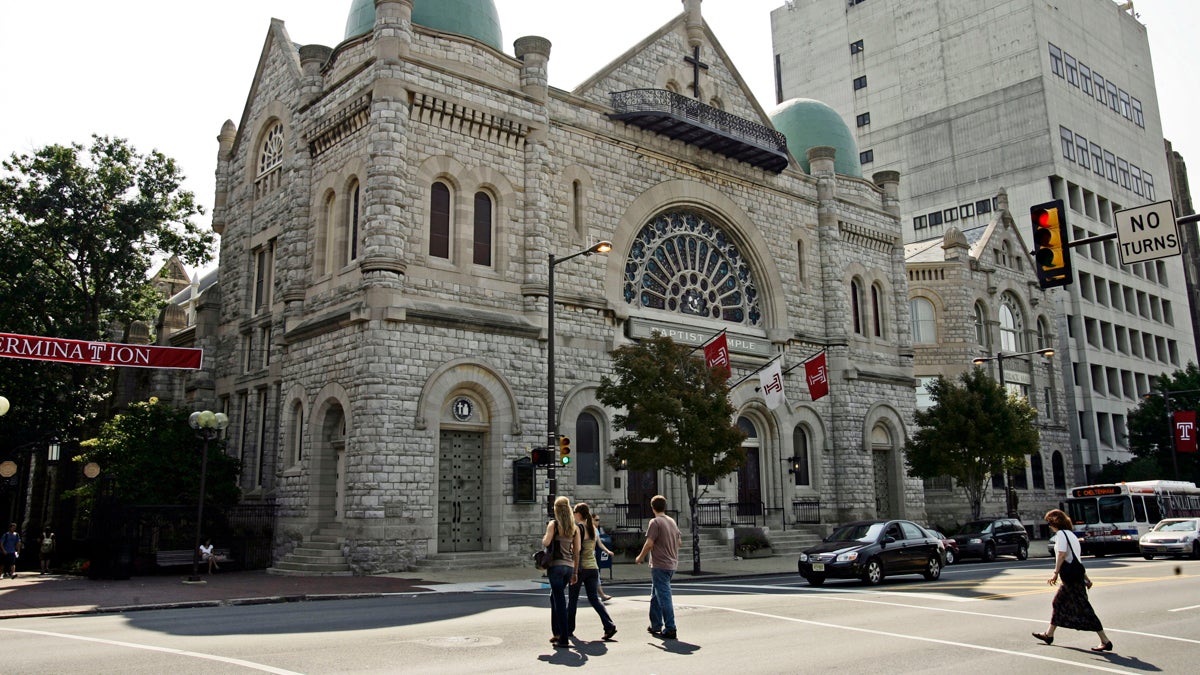Temple’s adjunct profs set spring vote on union

Temple University campus in Philadelphia (Matt Rourke/AP Photo)
Adjunct professors at Temple University are one step closer to unionizing after they filed authorization with the Pennsylvania Labor Relations Board this week.
The filing came after organizers successfully collected signatures from 60 percent of Temple’s 1,100 adjuncts – part-time teachers who work with virtually no benefits or job security. The adjuncts will vote this spring on whether to be represented by the United Academics of Philadelphia and the Temple Association of University Professionals.
“All of the adjuncts I know are dedicated teachers – they love teaching, or they’d go do something more profitable and stable,” said Elizabeth Spencer, an adjunct English professor who helped organize the union push. “But still, I think the students suffer from having a largely adjunct workforce – a workforce that doesn’t have a union, doesn’t have any benefits, and doesn’t have a guarantee that it’ll have a job in the spring.”
Spencer said that even if the adjuncts vote to unionize, no adjunct will be forced to pay dues or formally join the union.
But she hopes that collective bargaining will help adjuncts negotiate better working conditions – not just higher pay or benefits, she said, but more transparency about how adjuncts are assigned classes, and more security about their role on campus and their future with the faculty.
Among those who would benefit are students, she said.
“To give you one example, a lot of students need recommendation letters to get into graduate school, or to receive a job, or to get a scholarship,” Spencer said. “And I always try to do that when students ask me … but some adjuncts have to say ‘no,’ because they simply don’t have those extra hours to write those letters.
“Some of them are quite involved,” she added. “Right now, I have a student who’s applying to 10 different graduate schools. I thought I would be able to write one letter and send it to all the schools. But each school wants something slightly different, and they want you to fill out their own questionnaire, so it can be pretty involved – and that’s the kind of work that professors do that doesn’t get quantified.”
A better deal could go a long way toward easing the pressure on adjuncts, she said, who typically earn about $5,000 to teach one class for one semester – a job that can demand anywhere from seven to 10 hours a week, between class time, grading papers, and commuting. An adjunct who wants to approach a living wage by teaching five or six classes can easily end up working 60 hours a week, she said – with no guarantee that they’ll have the same class load the next semester.
A union-negotiated deal that gave adjuncts a little more security and a little more time to breathe between tasks would benefit everyone, she said
“Maybe they won’t have to teach as many classes, so they’ll be able to make [a few] more comments on each student’s paper, or they’ll have more time to talk after class,” said Spencer. “They won’t be rushing to catch the subway to go to the other campus. I just think they’ll be able to give students more of themselves.”
Spencer says there’s no date set for the spring union vote, but she expects the challenge for union supporters will be to make their case and get out the vote among adjuncts.
A spokesman for Temple said the university would have no comment while it reviewed the adjuncts’ filing.
WHYY is your source for fact-based, in-depth journalism and information. As a nonprofit organization, we rely on financial support from readers like you. Please give today.




